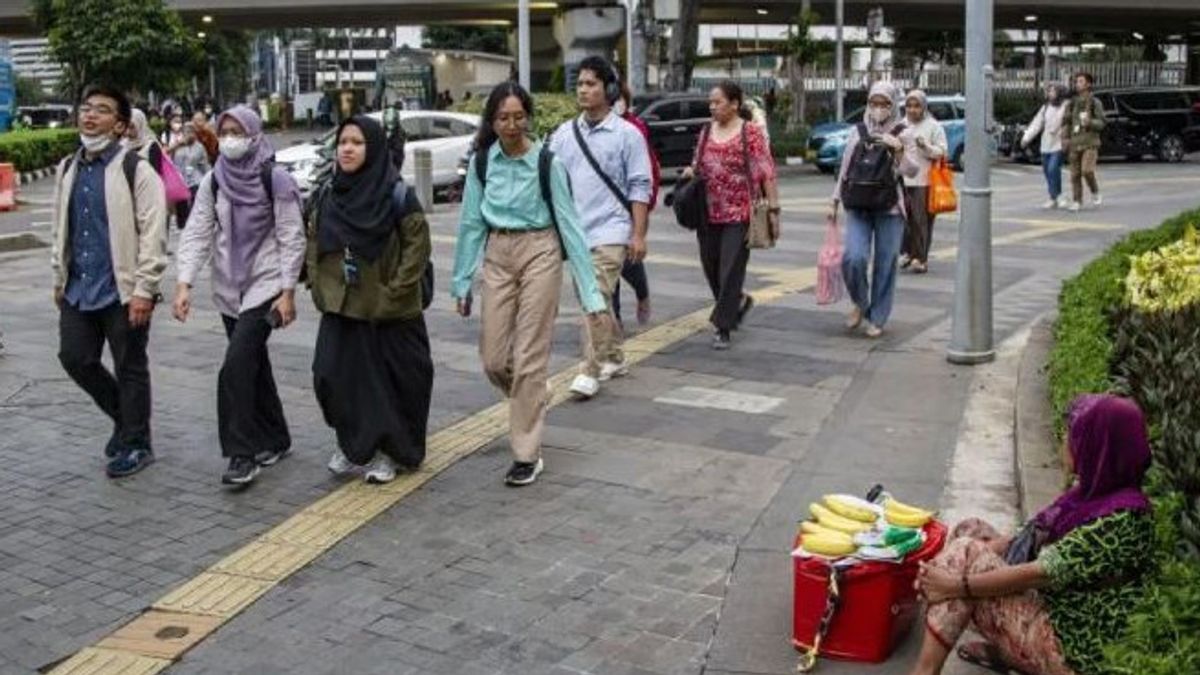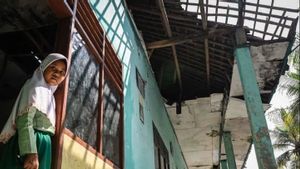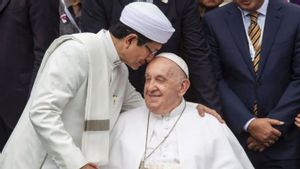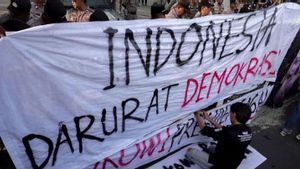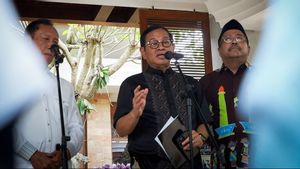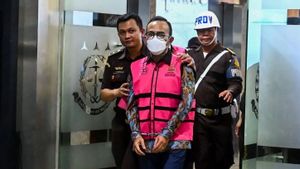JAKARTA The government's plan to design new regulations related to additional mandatory pension funds by cutting workers' wages has received negative reactions, both among workers and a number of economists. Economic observers assess this policy, although they do not know when it will be realized, has the potential to reduce workers' purchasing power.
The government is working on Government Regulation (PP) related to the mandatory worker pension program. This PP is a derivative rule of Law (UU) Number 4 of 2023 concerning the Development and Strengthening of the Financial Sector (P2SK) which is designed to increase the worker's recommendation ratio.
For information, the replacement rate is the ratio of workers' income when they retire compared to the salary value they received while still actively working.
Chief Executive of Insurance, Guarantee and Retirement Supervisory Funds of the Financial Services Authority (OJK) Ogi Prastomiyono said that the replacement ratio needs to be carried out because currently Indonesia is still at the level of 15-20 percent. Whereas the International Employment Organization or ILO sets a reference ratio value of at least 40 percent of the workers' last income.
Article 189 paragraph 4 of the P2SK Law states that the criteria for workers who are subject to compulsory pension funds are those who already have income above certain limits. Ogi did not specify further the minimum nominal salary for workers who would be subject to the obligation to pay the pension funds.
"Workers who have income exceeding a certain value are asked to add a voluntary, additional but mandatory pension fee, this will be regulated in the PP and POJK that are being prepared," explained Ogi.
However, the government's plan is opposed by many parties, especially among workers. The reason is, until now the salaries of workers in Indonesia have had to be cut into various types of contributions.
Starting from the old-age insurance program (JHT) and pension insurance (JP) BPJS Ketenagakerjaan (BPJS-TK), BPJS Kesehatan contributions, Income Tax (PPh) 21. Not to mention the additional contribution plan for Public Housing Savings (Tapera).
The addition of a salary cut is feared to only burden the community, especially the middle class which is getting narrower. In the aftermath, this could have an impact on decreasing purchasing power and slowing down in the national economy.
Executive Director of the Center of Economic and Law Studies (Celios) Bhima Yudhistira said that the addition of this pension contribution does not need to be applied at this time because it will only burden workers. According to him, the burden of workers' deductions that are too much is feared will actually reduce the positive income or income that is ready to be spent.
"For workers, additional deductions will reduce purchasing power, the income will drop even more. In the last 10 years, workers have faced a low minimum wage increase," Bhima said when contacted by VOI.
"Pungutan juga sudah terlalu banyak ada BPJS kesehatan, BPJS-TK, PPh 21, plus rencana Tapera akhirnya mengurangi pendapatan tersisa untuk digebungkan atau ditampung," imbuhnya.
SEE ALSO:
In fact, Bhima said, preparations for retirement do not have to be in the form of mandatory collection of funds to an institution. If there are workers who have excess income, for example workers with salaries above Rp. 15 million per month, then they can be allocated for other investments such as mutual funds, stocks, and property.
"If the double-dobel has invested in asset instruments, then they are required to retire so they don't feel good," said Bhima.
Another impact that can occur due to the large number of levies is that the industry is hit so that there is the potential for a wave of layoffs (PHK) to occur again due to a slowing economic turnover.
"So there is indeed a correlation of the mandatory retirement fund plan to lower worker income in the future," he said.
OJK said government regulations on this matter were still being drafted, but at the same time it was stated that this mandatory pension fund would be channeled through non-bank management institutions. As an illustration, there are two types of non-bank financial institutions that can manage pension funds in Indonesia, namely the Employers' Retirement Fund (DPPK) and the Financial Institution Pension Fund (DPLK).
In terms of the benefits received by participants, Ogi said additional pension funds would be similar to BPJS-TK Pension Guarantee. Thus, the benefits will be received by participants regularly every month after retiring.
"So this is different from the JHT at BPJS-TK, which when retiring can be disbursed in cash or at once," said Ogi.
If the management will actually be carried out by the DPPK, then this will be a new mandatory contribution separate from the JP and JHT contributions to BPJS-TK. Thus, workers affected by this policy are likely to pay pension fees to two different managers.
"What logic is used by the government about why it must be separated, this is why the government must explain why this additional pension fund is separate from the current BPJS pension insurance program," said Andriko Otang from the Trade Union Rights Center (TRC).
"The company will also object, they have already paid the DPLK/DPPK contributions but why do you have to pay BPJS-TK fees again? That's a double," Andriko added.
Andriko explained, the mechanism for managing pension funds between BPJS and DPLK/DPPK is different. BPJS is a public legal entity for social security. They can make a profit, but to be returned to the workers as beneficiaries. Meanwhile, DPLK/DPPK are more profit-oriented because they are managed by business entities.
In addition, the form of accountability is different. BPJS is under the responsibility of the direct president. So that if BPJS reaches a deficit, the government can give an injection from the APBN as a form of responsibility. Meanwhile, the DPLK/DPPK is supervised by the OJK.
Social security observer Timboel Siregar questioned who would be responsible if the DPLK/DPPK failed to invest. Because according to him, many DPPK and DPLKs were destroyed. He gave an example of how cases of default and corruption in Jiwasraya illustrate this risk more or less.
If they fail to invest, who is in charge? Many DPPKs and DPLKs have been destroyed, now additional pension funds are going to be applied there. Who wants to be responsible? " said Timboel.
The English, Chinese, Japanese, Arabic, and French versions are automatically generated by the AI. So there may still be inaccuracies in translating, please always see Indonesian as our main language. (system supported by DigitalSiber.id)
